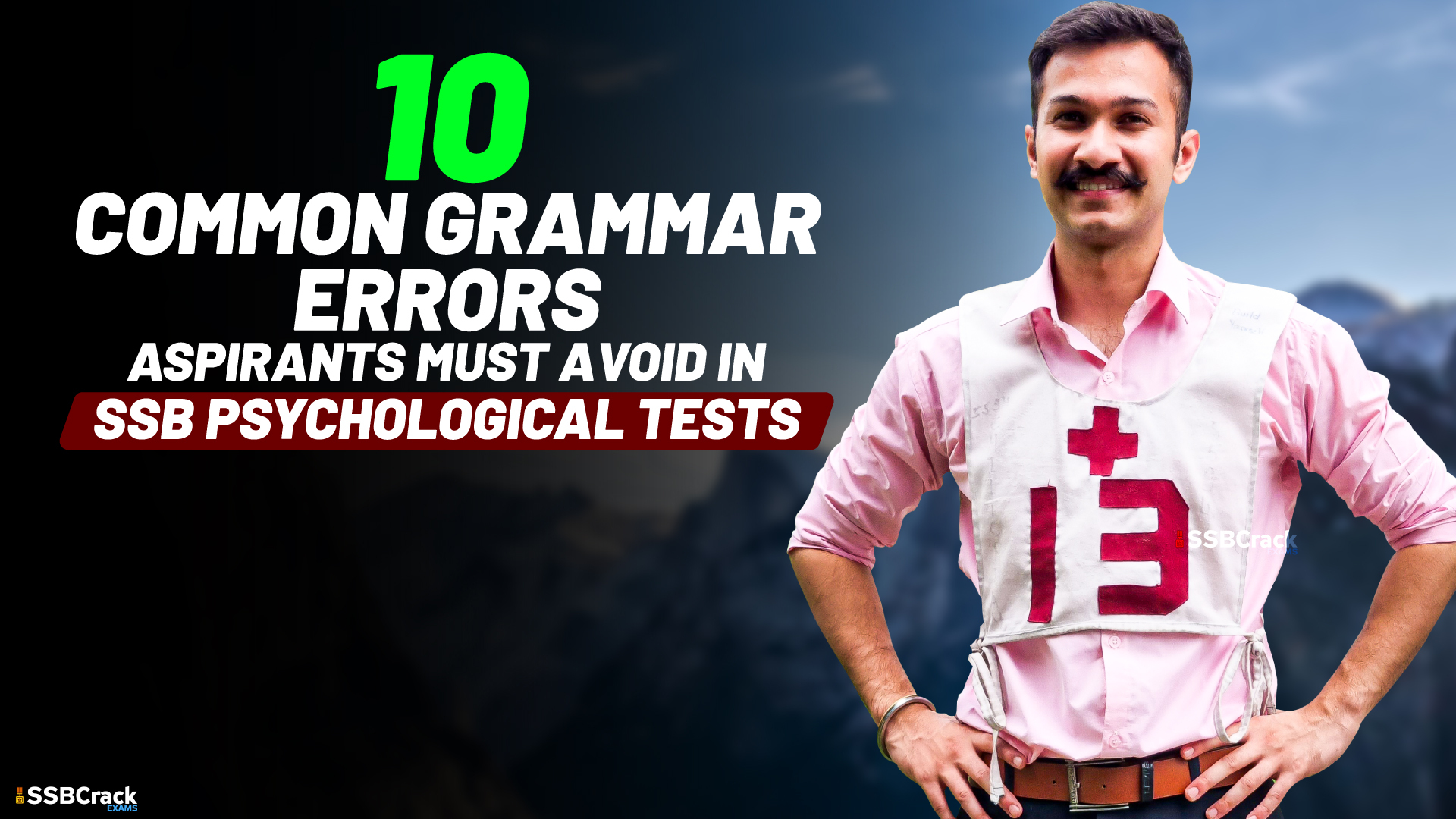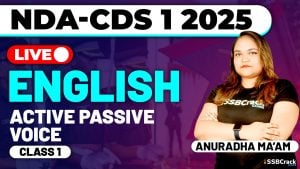As you all know that SSB psychological tests are more about writing continuously for two hours, these are series of tests you will face one by one; it’s a game of pen and paper. Though most of us would say that our grammar won’t really matter in psychological tests and it’s all about what you want to express, which is somewhat correct, these are very silly grammar mistakes that sometimes change the meaning of your sentence completely. When the testing officer says that you just focus on expressing yourself and do not care about the beauty of expression, he didn’t mean that you can make grammatical mistakes and he will manage to understand it correctly, it is always better not to make a silly mistake.
So here are a few common grammar errors that you avoid while writing your TAT stories, SRT solutions, and WAT sentences.
- Lack of subject-verb agreement: Subjects and verbs must agree in number.
Examples:
The dog growls when he is angry. [singular]
Dogs growl when they are angry. [plural]
- Using the wrong pronoun:
Incorrect: Everybody must write their own poem.
Correct: Everybody must write his or her own poem.
- Incorrect use of apostrophes
Examples:
Its vs. It’s – Its branches were falling. It’s a cold day.
They’re vs. Their – They’re ready to leave. They are on their way.
- Missing comma or semi-colon in a compound sentence:
Correct: She wanted to go, but she didn’t have a car.
- Writing run-on sentences:
Incorrect: Tom is very cute, he is very popular at school.
Correct: Tom is very cute. He is very popular at school.
- Misuse of homophones:
Examples:
Accept vs. Except – Accept means to receive. Except means to take out or leave out.
There vs. Their – They wanted to go there. Their mother was not home.
- Using wrong verb tense:
Examples:
For present tense – We walk to the store.
For past tense – We walked to the store.
For future tense – We will walk to the store.
- Using who vs. whom:
Examples:
Who is a subject pronoun. Who is driving the car?
Whom is an object pronoun. With whom are you going to the party?
- Using double negatives:
Incorrect: She doesn’t have no idea of what to do next.
Correct: She doesn’t know what to do next.
- Using few vs. less: Use “few” or “fewer” for things you count. Use “less” for things you measure.
Example: She wore out fewer shoes because she walked less miles.
Conclusion
In SSB Psychological Tests, attention to detail and effective communication are vital. These common grammar errors, if left unaddressed, can affect your performance and convey a lack of precision in your communication skills. Aspirants must diligently practice and review their writing to avoid these mistakes. Strong grammar and language proficiency not only enhance your performance in SSB Psychological Tests but also reflect the discipline and attention to detail that the armed forces value in their candidates.


















